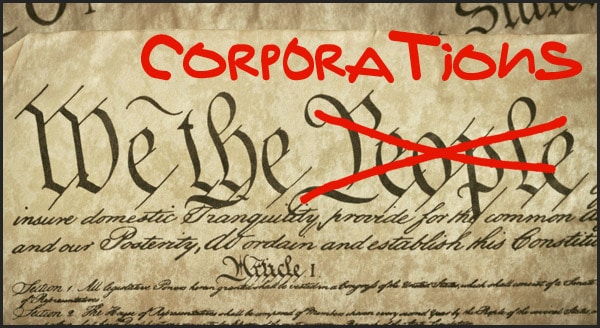With the quick stroke of a pen, a circuit court judge in St. Louis has singlehandedly silenced more than 22,000 city residents, who had sought to bring a ballot initiative to end tax breaks to fossil fuel companies to a citywide vote in April.
Last summer, volunteers with the Take Back St. Louis coalition gathered over 22,000 signatures to put onto the ballot a measure that would amend the city’s charter to include a “Sustainable Energy Policy” and end taxpayer-funded support of fossil fuel companies.
According to Take Back St. Louis, the “proposed charter amendment would end public financial incentives, such as tax abatements, to fossil fuel mining companies and those doing $1 million of business with them per year, and requires the city to create a sustainable energy plan for renewable energy and sustainability initiatives on city-owned vacant land.”
On Tuesday, Judge Robert Dierker sided with Peabody Energy (in a decision you can read here) to grant a temporary restraining order that would, in essence, keep the initiative off the April 8th ballot.
First declaring the initiative “facially unconstitutional,” Judge Dierker proceeded to cite the Citizens United decision in explaining why the policy would represent a “patent denial of equal protection” to fossil fuel energy companies. Specifically, Judge Dierker wrote:
business entities (which, after all, are a species of associations of citizens coming together in the exercise of economic freedom) are entitled to constitutional protection as citizens and may not arbitrarily be denied basic legal rights. See Citizens United v. Federal Election Comm., 558 U.S. 310 (2010).
The proposed initiative and judge’s decision have implications far beyond the city of St. Louis. Peabody Energy, the largest privately-owned coal mining company in the world, is headquartered in St. Louis, and received tax breaks of over $61 million from the city in 2010. The Take Back St. Louis coalition was hoping to target future giveaways, arguing that the public funds would be much better spent on underfunded local services like schools.
“We fundamentally disagree with this temporary ruling, and quoting Citizens United is an insult to home rule powers and our local democracy. Saying that Peabody Energy has equal rights with St. Louis public school students who lack supplies due to corporate tax breaks is what is a violation of rights in our city,” said Reginald Rounds with the Take Back St. Louis campaign. “We, and the 22,000 registered voters in the City of St. Louis who signed to put this on the ballot, will continue to fight for our right to have a sustainable local economy, not one run by coal corporations and other polluters.”
Peabody Energy’s lawyers filed the restraining order motion two weeks ago, and seem to have a sympathetic ear with Judge Dierker, who is an outspoken opponent of public interest law. In 2006, Judge Dierker authored “The Tyranny of Tolerance: A Sitting Judge Breaks the Code of Silence to Expose the Liberal Judicial Assault,” a book which he promoted extensively on Fox News.
Also providing testimony in the hearing were two representatives from the mayor’s office, who oppose the citizen-driven initiative, spotlighting what Take Back St. Louis reps call “collaboration” between the mayor’s office and Peabody.
Take Back St. Louis has vowed to fight the temporary restraining order, and the legal battle could prove a crucial precedent for how the controversial Citizens United ruling can be applied to local resistance against taxpayer handouts to fossil fuel companies.
Subscribe to our newsletter
Stay up to date with DeSmog news and alerts






